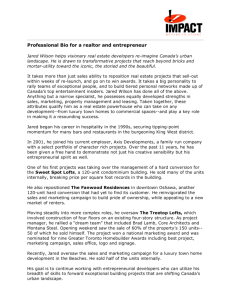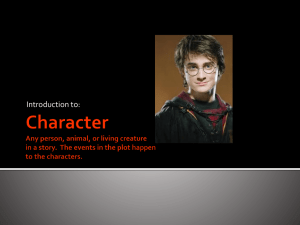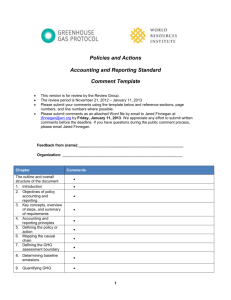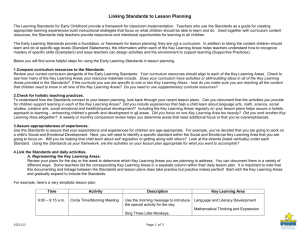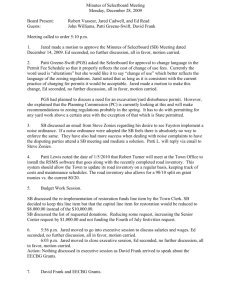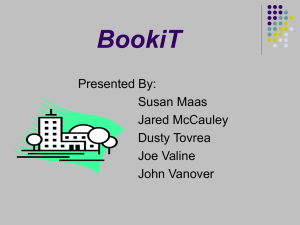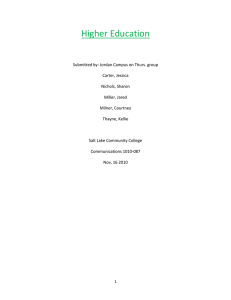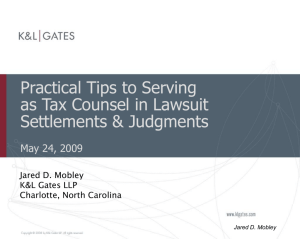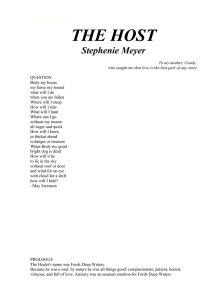Field Experience Reflection Paper
advertisement
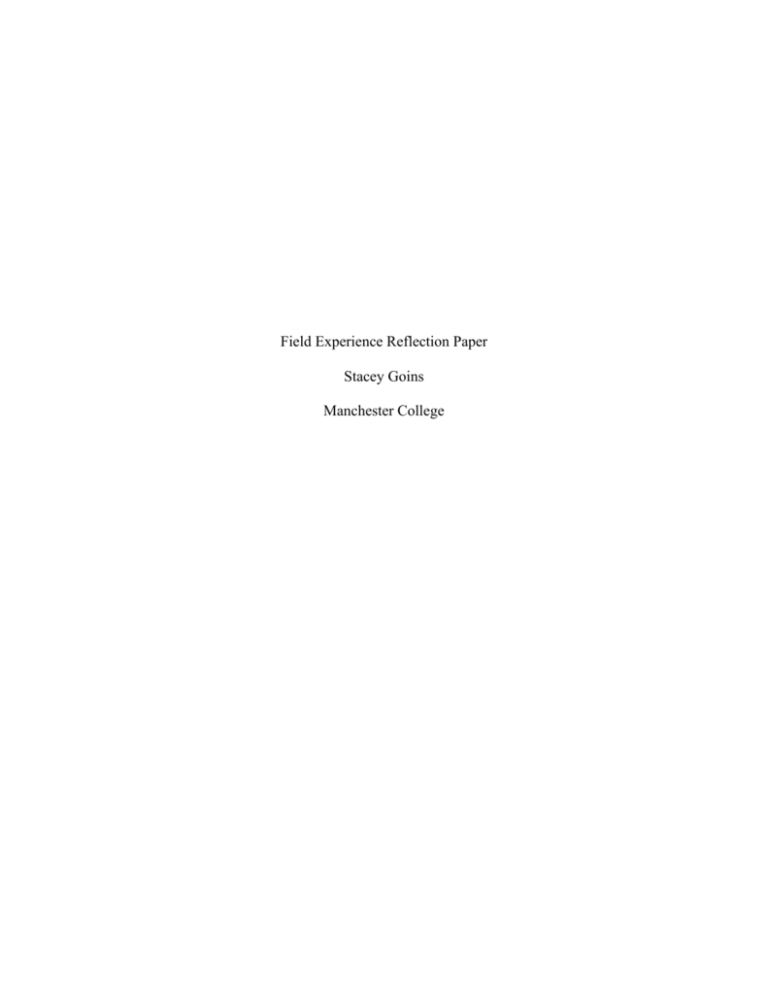
Field Experience Reflection Paper Stacey Goins Manchester College I went to Sharp Creek two times a week to tutor a sixth grade boy named Jared. This was the most unorganized assignment I have ever done. It took me forever to be able to figure out what would work with my golf and class schedules. Once I figured out a time and day that would work for me, it didn’t work too well with my student. I ended up going every Tuesday and Thursday from 9:30 to 10:30. I had to take Jared out of class each time I went to tutor him. I was tutoring him in math, and sometimes I would have to take him out of math in order to work with him. I didn’t really feel like that was very beneficial to him, but that was the only time I had available. Jared was a sixth grade male, like stated above. He had problems in math. His basic addition, subtraction, multiplication and division were good. He had problems with dividing by double digit numbers. Jared also had problems getting his homework finished. That is what we worked on most days. There were a few times where I would go to the school and he wouldn’t’ have any homework and we would just play different math games involving dice. One game that we played we would roll two dice, and multiply them, then we would roll a third die and subtract that from the product of the first two die. Piaget’s concrete operational phase of cognitive development has had an effect on my students. The students used the methods taught in class to do their homework. If they do not understand the homework, this shows Vygotsky’s idea. Vygotsky’s idea of teaching the students just above the level of their current level of functioning is evident with my students. Therefore I have to try different techniques to help them understand the homework. I can help them with homework if they tell me about it. Kohlberg’s punishment-obedient stage was never tested with Jared. Erikson’s industry verses inferiority phase of psychosocial development has an effect on my student. There were times when he would be really good about working on his homework, and then there were times when he really wasn’t into it. I would have to keep pulling his attention back to his math. Gardner’s logical-mathematical and intrapersonal intelligences of eight intelligences have had an effect on my student. The logical-mathematical intelligence has had an effect on Jared because we always worked on math homework. The intrapersonal intelligence has an effect on my student because he knows his own weaknesses for the most part. This is the part where Jared does not want to study, but we work on it even more to help him try to catch up with the other students. It was difficult at first for me to help Jared out with his math. I am not very strong in math myself, so I was really nervous about helping him. I had to go back and re-teach myself a lot of the materials Jared was learning. When I was helping Jared with his homework I had a idea where he was coming from and was able to look at the problems and material from a little bit different point of view. I tried to explain it in a way that I understood it, and most of the time that worked. There were a couple of times where I had to come back to school and ask someone else to give me a couple of different ways in order to better explain it to him. I didn’t really set too many goals for myself; I was a little confused during the whole field experience about what type of goals I should have. All I did every day was simply to help Jared finish his homework. Basically my main goal each day was to have Jared finish his homework. Most days this goal was accomplished. The biggest goal I had for myself was to find a way for Jared to understand the materials I was trying to teach him. A goal I have made for myself for the future it to actually set goals. By setting goals along the way I know how much I am accomplishing with my students. I want to be able to see the progress that they are making. This semester I have learned that planning a lesson plan isn’t as easy as all of the other classes make it seem. A regular lesson plan that you will actually use in the classroom aren’t that difficult, but actually drawing it out and justifying everything you do is a lot more work. It was pretty interesting seeing on paper what is actually going through your head while you are making up plans. I didn’t really learn anything about teaching that I hadn’t already learned in my other education classes. A lot of things that are covered in most of the education classes seem to be the same. I did however learn how different learners learn, and how to figure out which ways work best through Gardner’s Theory of Multiple Intelligences. I find it very fascinating how many different learning styles you can have in your class. I am, however a little nervous about being able to meet all of those different needs.
